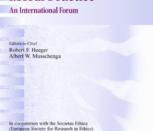Should Stonecipher have been forced to resign?Absolutely! Mr. Stonecipher was brought back to the company from retirement to effect mounds of negative publicity surrounding the company. Stonecipher's reputation preceded him, and he was well known as a just and upright person, with impeccable moral and ethical character. Additionally, he was known to be brass in conversation, but astute in his ability to upright wrong or failing companies.
First, the Boeing company had previously experienced issues from senior executives involving ethics violations. Two senior employees had performed unethical acts which had publicly embarrassed the company, one of which resulted in the lost of a huge overseas aircraft manufacturing contract resulting in significant lost of revenue for the company. The violations were know throughout the company and had been widely publicized. As a result, the Boeing Board needed someone of high moral and ethical standard to enter the company, establish, set, and maintain ethical and moral standards; this person the company determined would be Harry Stonecipher.
Second, Harry Stonecipher, used very poor judgment by entering into a relationship with a fellow company executive. Although as the upshot of an internal investigation the affair was determined consensual, Stonecipher was married and a grand father as well. Furthermore, how could he as the supposed "chief of ethics" for the company knowingly and willingly violate the fundamental guidelines and high moral standards he was hired to implement and oversea.
Third, lets look at the contractual obligations that he had with for, example his wife. This is obviously a violation of this agreement in the form of adultery. How could Boeing tolerate such an action? Then there is the contract either explicitly or implied with the company itself to establish and maintain the highest moral and ethical standards as well. Furthermore, the existence of...


